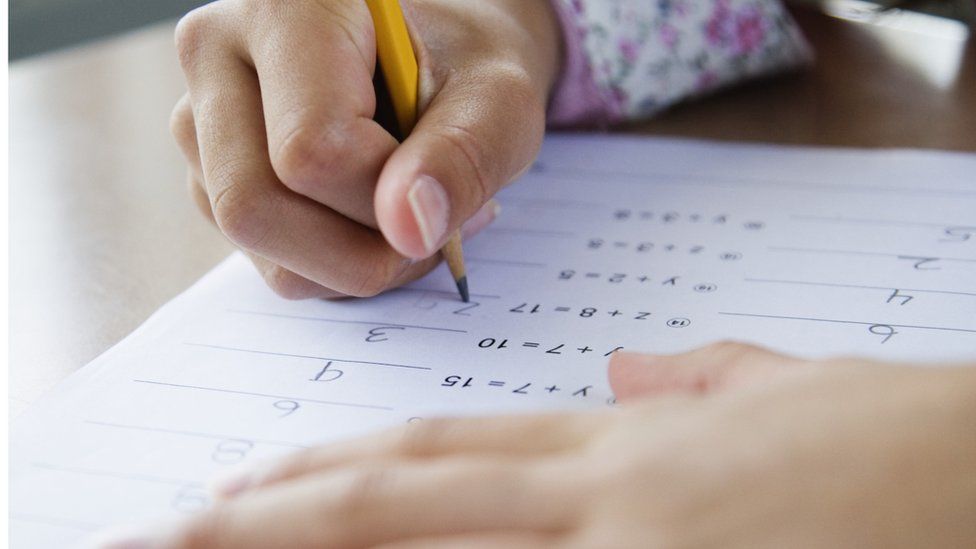Baseline tests dropped as progress measure
- Published

Baseline tests for reception pupils in England are not reliable enough to measure progress this year, says a study for the Department for Education.
The education department, which is introducing the tests, says it would be "unfair" to use them as a measure.
There are three different testing systems that schools can use - but the study says the results are not "sufficiently comparable".
A head teachers' union said: "It is hard to avoid saying 'we told you so'."
Tests for pupils at the beginning of school, known as "baseline tests", were intended as a starting point against which to measure progress through primary school.
'Inappropriate'
But they have faced opposition from teachers' union leaders who criticised them as introducing an unnecessary set of tests for young children who had just started school.
The Department for Education has now backed away from using the tests for measuring progress this year - after publishing a study that it had commissioned looking at the comparability of the three testing systems.
"That study has shown that the assessments are not sufficiently comparable to provide a fair starting point from which to measure pupil progress," says a statement from the Department for Education.
"In light of that, we will not be using this year's results as the baseline for progress measures. This would be inappropriate and unfair to schools."
The study from the Standards and Testing Agency concluded that the tests in literacy and numeracy, with three separate systems in use, were not sufficiently comparable.
Schools could choose between versions of the test provided by Early Excellence, Durham University's Centre for Evaluation and Monitoring (CEM) and the National Foundation for Educational Research (NFER).
The study suggested that pupils of similar ability could get different results, depending on which test they had taken. As such the results could not be reliably used as a standard benchmark to measure progress.
The National Association of Head Teachers said the government had "outsmarted itself by choosing multiple providers of these assessments - none of which compare to each other".
"They cannot provide a measure of progress that can be compared between schools.
"This outcome is symptomatic of the general chaos on assessment in the primary phase, with poor planning and a lack of consultation with the people who know what will actually work."
Delegates at the National Union of Teachers had attacked baseline tests at their annual conference at Easter. The union said that its campaign had "made the government come to its senses and realise that baseline assessment was never a good idea in the first place".
Malcolm Trobe, interim leader of the ASCL head teachers' union, said: "It was too narrow a way of assessing the ability of young children and having different assessment methods in different schools was muddled."
Labour's shadow children's minister Sharon Hodgson said the government was "u-turning on assessment policies that they were championing only weeks and months before".
"This government's piecemeal approach to assessments lacks any joined-up or coherent strategy, threatening standards in our schools."
Early Excellence, a widely-used provider of baseline assessments, said that it would continue to offer its version of the test next year.
The education department says it is still committed to the principle of baseline testing and "will continue to look at the best way to assess pupils in the early years".
As such, there will be optional baseline tests if schools want to take them next year, but the results will not be used for "accountability purposes".
- Published10 May 2016
- Published27 March 2016
- Published12 February 2016